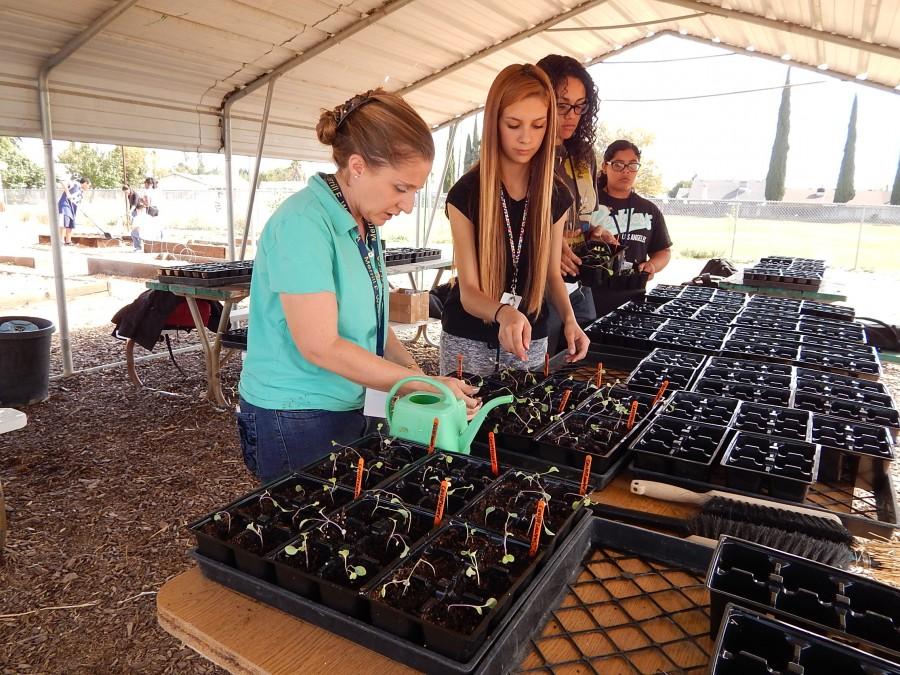New plans blossom for class garden
In its own petite haven, there exists an agricultural biology garden where it is not uncommon to find determined students spending their Saturdays sowing devotion. Their tenacious efforts are promoting the establishment of a new winter and California native plant garden.
Amy Thorpe, an agricultural biology teacher, has spent her years teaching at Merrill F. West High School encouraging her students to be involved through experiential activities that interest the students. Although the garden was initiated more than fifteen years ago, not a single year has gone by without the agricultural biology classes tending to it. “It’s a way to get students hands-on opportunities at growing their own food,” said Thorpe.
The garden also serves as a potential hot spot for the students to organize and accomplish their Supervised Agricultural Experience (SAE) projects. From raising chicks to growing flowers, the SAE projects help broaden the students’ horizons in the practices of biology. Freshman Jessica Aguilar summarized her understanding of the assignment as “…basically, a project for good.” Students are to spend fifteen hours designing and fulfilling an agricultural project that will help them develop environmental skills and gain healthy experience with horticultural activities.
Thorpe explained in an interview that a winter garden (including cabbage, lettuce, radishes, broccoli, carrots and peas) and a California native plant garden (including wild plants such as poppies and milkweed) are all in the future plans for the garden. Fortunately, the California native plants will also prove to be profitable to the garden and its environment. “Not only are they drought-tolerant, they attract beneficial insects, they attract wildlife,” Thorpe said. A $10,000 scholarship will aide in the building of a shade house for the native plant nursery. These plants will then be sold to the public.
Meanwhile, the fauna that reside in the garden are also flourishing. Locally fostered chickens are being raised on campus and are producing free-range chicken eggs. After the students care for the eggs for six months, the eggs will be sold to teachers who hold subscriptions.
The agricultural biology class advocates the fundamentality of maturity, responsibility, commitment and strong leadership skills in all aspects of life. As these exciting proposals bloom into promising possibilities, the future will definitely hold a prosperous pathway for the growth of the educational garden.






